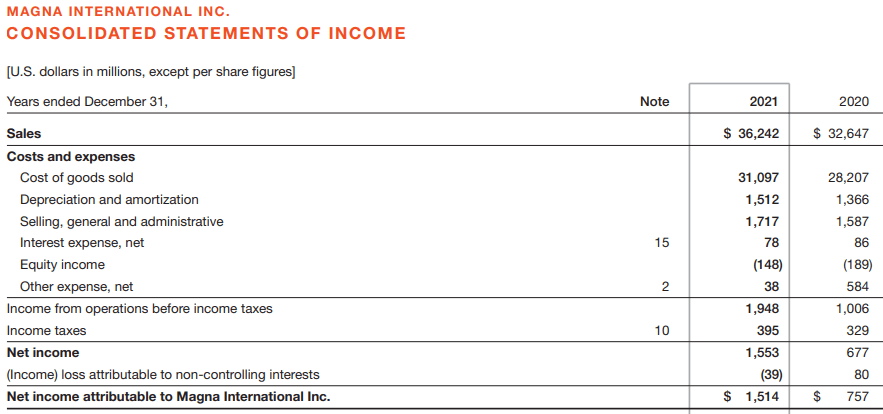Canadian auto parts company Magna International has seen slow growth in gender diversity in recent years.
After maintaining a level of 26% in both 2019 and 2020, approximately 27% of employees at its wholly owned operations were women in 2021.
This indicator was not specified in 2018.
Additionally, a total of about 4,300 employees at its wholly-owned operations held critical positions, of which 705, or 16%, were women at the end of 2021.

Both the percentage of women in its wholly owned operations and the percentage of women in critical roles increased slightly from the prior year.
The underrepresentation of women in Magna International’s workforce is most pronounced in the IT, operations and product engineering career streams, which is a consistent trend throughout the automotive industry.
Accordingly, the company recognizes that there are improvements to be made and is pursuing strategies to accelerate the progression of women, in managerial and board-level roles, and in its most critical operational and technical roles, where there is the highest level of underrepresentation.
Magna International
As part of its succession planning program, the company continues to identify high-potential, diverse talent candidates and implement accelerated development plans to support their progression to advanced roles.
During talent and succession discussions, there is a heightened level of focus on the number of women and diverse candidates nominated in each of their succession pools.
At the same time, the Magna International Board of Directors as a whole continues to advocate for better gender representation and other diversity in leadership and other critical roles, as well as STEM (science, technology, engineering and mathematics) careers.
In addition to their strong advocacy, the directors of the Board, who currently represent 38% of its Board of Directors, have also sought opportunities to mentor and share their experiences with the company’s high-performing female employees.
Recognizing the important example set by the Board regarding its own composition, the Board has adopted a Board Diversity Policy (located in the Board Charter), which targets gender parity by December 31, 2023, subject to a minimum of not less than 30% female directors prior to that time.
In accordance with the recommendations of the Canadian Coalition for Good Governance, gender parity will be achieved if the balance between male and female directors is between 40 and 60% over a three-year period.
![]()

